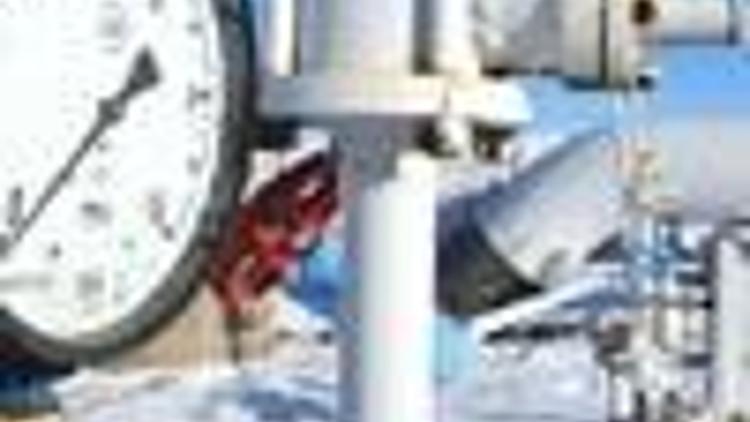Hurriyet DN Online with wires
Oluşturulma Tarihi: Ocak 03, 2009 11:25
OAO Gazprom boosted gas flows to Europe through Belarus as Russia’s dispute with Ukraine over pricing deepened and accused Kiev of siphoning some supplies to the Balkans.
No new talks are scheduled between Russia and Ukraine over the gas row as the European countries began to feel the impact of the gas dispute.�
Talks between the two sides on the price of gas deliveries to Ukraine for 2009 and transit fees for Russian gas to Europe through the country broke down on Dec. 31 and Gazprom cut supplies of the fuel to Ukraine Jan. 1.
Russia, which supplies a quarter of Europe’s gas, 80 percent through Ukraine, is seeking to avoid further damage to its reputation after its August war with U.S.-allied Georgia.
This week’s cutoff echoed a similar dispute in 2006 which disrupted supplies to Europe, calling into question Russia’s reliability as an energy supplier.
Officials from Gazprom, Russia’s state gas exporter, are ready to travel to Brussels and European Union countries to explain Russia’s stance, the Russian Foreign Ministry said Friday.
A Ukrainian delegation led by Energy Minister Yuriy Prodan was already on a tour of EU capitals, visiting Prague and Bratislava to hold talks on the gas price and debt conflict.
The Czech presidency of the European Union called an extraordinary meeting of envoys from the bloc for Monday to discuss the crisis.
Gazprom spokesman Sergei Kupriyanov told reporters the Russian company has increased shipments of gas through an alternative route via Belarus, and has capacity to send further supplies using that network.
EUROPE STARTS TO BE AFFECTED
The European Union urged Russia and Ukraine to “rapidly” resolve their dispute and said it counted on assurances gas supplies would continue uninterrupted.
The U.S. said the two sides should resolve their differences “through good-faith negotiations, without supply cutoffs.”
Slovakia and the Czech Republic yesterday said their supplies have so far been normal. Italy said it can meet any short-term demand from storage and could, if necessary, increase supplies from Algeria.
Polskie Gornictwo Naftowe I Gazownictwo SA, Poland’s largest gas distributor, said Russian gas supplies via Ukraine had dropped 6 percent but that deliveries via Belarus had risen to cover them.
In Hungary, which saw deliveries fall as much as 35 percent in the 2006 dispute, there was a drop of pressure detected at the border, but no decline in the amount delivered so far, Edina Lakatos, a spokeswoman for Mol Nyrt. unit FGSZ Zrt., which operates the country’s gas transmission network, said by phone.
GAZPROM ACCUSES UKRAINE
Gazprom on Jan. 1 withdrew an offer to sell Ukraine gas at $250 per 1,000 cubic meters as the Ukrainian side pushed for a cheaper rate, saying the country must now pay a European market price of $418. Kupriyanov said
Ukraine, which relies on Russian gas for 70 percent of its needs, is in the midst of a financial crisis that has forced it to secure a two-year, $16.4 billion International Monetary Fund bailout. It is asking Russia to pay higher transit fees if it wants to raise gas prices.
Gazprom on Jan. 1 increased its deliveries to Europe through Ukrainian territory by 20 million cubic meters a day.
It accused Ukraine of siphoning off that amount and blocking access to the transit facilities by independent experts. Ukrainian state energy company NAK Naftogaz Ukrainy said it is using the Russian gas to keep the pipeline network operational.
Kupriyanov said yesterday that Ukraine would still owe Russia $614 million after paying $1.5 billion out of debts of $2.1 billion for gas received in November and December plus fines.
Naftogaz doesn’t recognize any debt on Russian gas and has “paid for everything,” Valentyn Zemlyanskyi, a spokesman for the Ukrainian utility, said by phone in Kiev. Zemlyanskyi said any penalties must be discussed in court.
The threat to European energy supplies is less severe than during the 2006 dispute, because liquefied natural gas shipments have diversified supplies and utilities say they have sufficient inventories. Ukraine says it has gas in storage equivalent to about 35 percent of annual consumption.


